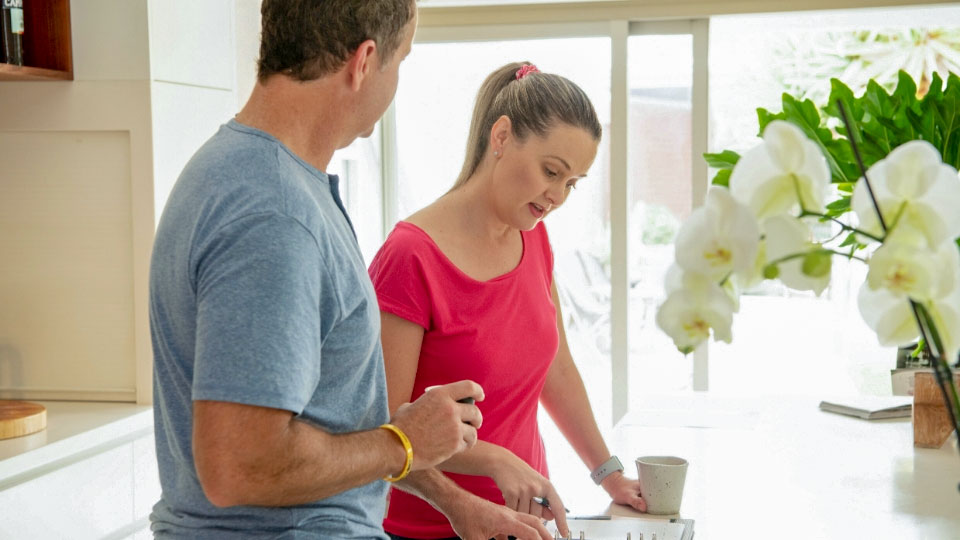This is our final article in a six-part series on how to father in a blended family. This week’s advice is around developing strong, positive parenting partnerships – so your blended family see a strong, mindful team working to support each other, with kids at the forefront of their minds.
- Show them the relationship works
- Get to know your partner’s ex-partner
- Keep the kids needs at the forefront of your mind
- Avoid criticism and competition
- Be mindful of time pressure
- Look after your new relationship
- Bring the pressure down
- You are important too
- Take every opportunity to model a respectful, healthy relationship with your partner.
- Children really do want to see their parents in happy and healthy relationships.
- Whatever the reason that the natural parents are not together, it may have been a hard ending and children need to see a loving and healthy relationship.
- Your partner’s ex might need time to adjust to you as a stepparent.
- It can be easier if you don’t have much involvement with your partner’s ex, at least at first.
- It usually works best if the two biological parents talk about childcare and other issues with each other, especially in the early years.
- Over time your involvement can grow, with the agreement of the biological parents.
“Your relationship with the other parents (your partner’s ex, and any other guardians) can potentially make or break your relationship with your stepchild, so try to encourage a civil relationship.
This is often easier said than done.Sometimes there may be jealousy and hostility. The best thing to do in this case is to remain as calm as possible.
Never bad-mouth the absent parent in front of their child, no matter what. Doing so will only distress your stepchild, as they don’t want to have to choose between their parents or take sides, and is likely to damage your relationship with your stepchild in the long run.”
- Try not to fall into a trap of competing with a biological father or other key father-figure.
- No matter what you think of another’s style of parenting; it is important to respect and acknowledge the strength of their relationship with the kids.
- This can be difficult to do if there is still tension between your partner their ex-partner. Face this challenge with respect.
- Understand that your partner may have to spend some time alone with the children to give them support, so they will not always be available to you.
- Be flexible and understanding of the pressures your partner is under and reassure them that you can be a team to make things work.
- The children may need this time initially to reassure them that they still belong and have not lost the love, care, or attention of their parent to you.
- Communicate with your partner regularly about all of your priorities, including your own relationship.
- It’s likely your schedules and lifestyle will change when you first move in with your new blended family. Be conscious of this challenge and talk openly about any concerns.
- Work with your partner to address any issue and remember creativity can often help you find good solutions.
“We had been so busy focussing on the kids and what was best for them that we had almost forgotten that we were also in a new relationship and still really getting to know each other.
We made a promise to do a date night every month to make sure that we had time to connect and develop our own relationship.”
- While you must remember the children in this new family dynamic, it can also be a very intense time for your new relationship with your partner.
- Don’t get so consumed by the children that you lose track of or damage your relationship with your partner. This won’t be good for the children in the long term either.
- Don’t be too hard on yourself if everything doesn’t run smoothly straight away.
- Be conscious that working through all the details will be a challenge. Try to focus on teamwork and finding solutions, rather than laying blame.
- Even if you have never been a father or father-figure before, know that it can be one of the most rewarding roles you will ever play.
- Fathers and father figures are hugely important in the lives of children, and you don’t have to be the biological father to have a big positive impact on the lives of the children in your care.
- When you’re a father-figure, it’s more important than ever to look after your own health and wellbeing – set a good example and make sure you are as healthy as possible to take up this role with your new family.
The learnings in this article series are based on our research and years of experience supporting fathers and father-figures. But the fact is, everyone’s situation is different, so feel free to be creative, and adapt our wisdom to suit your circumstances.



